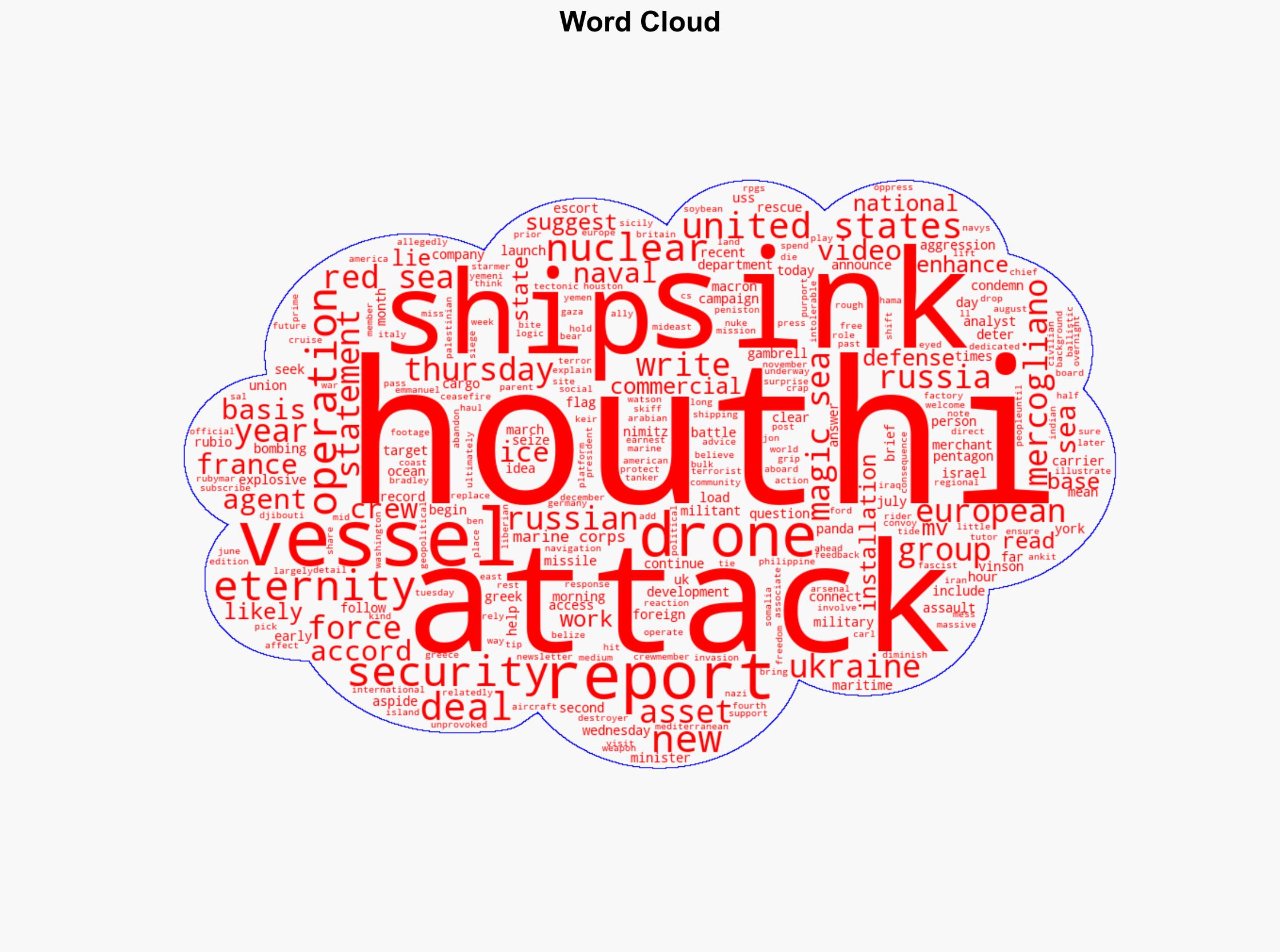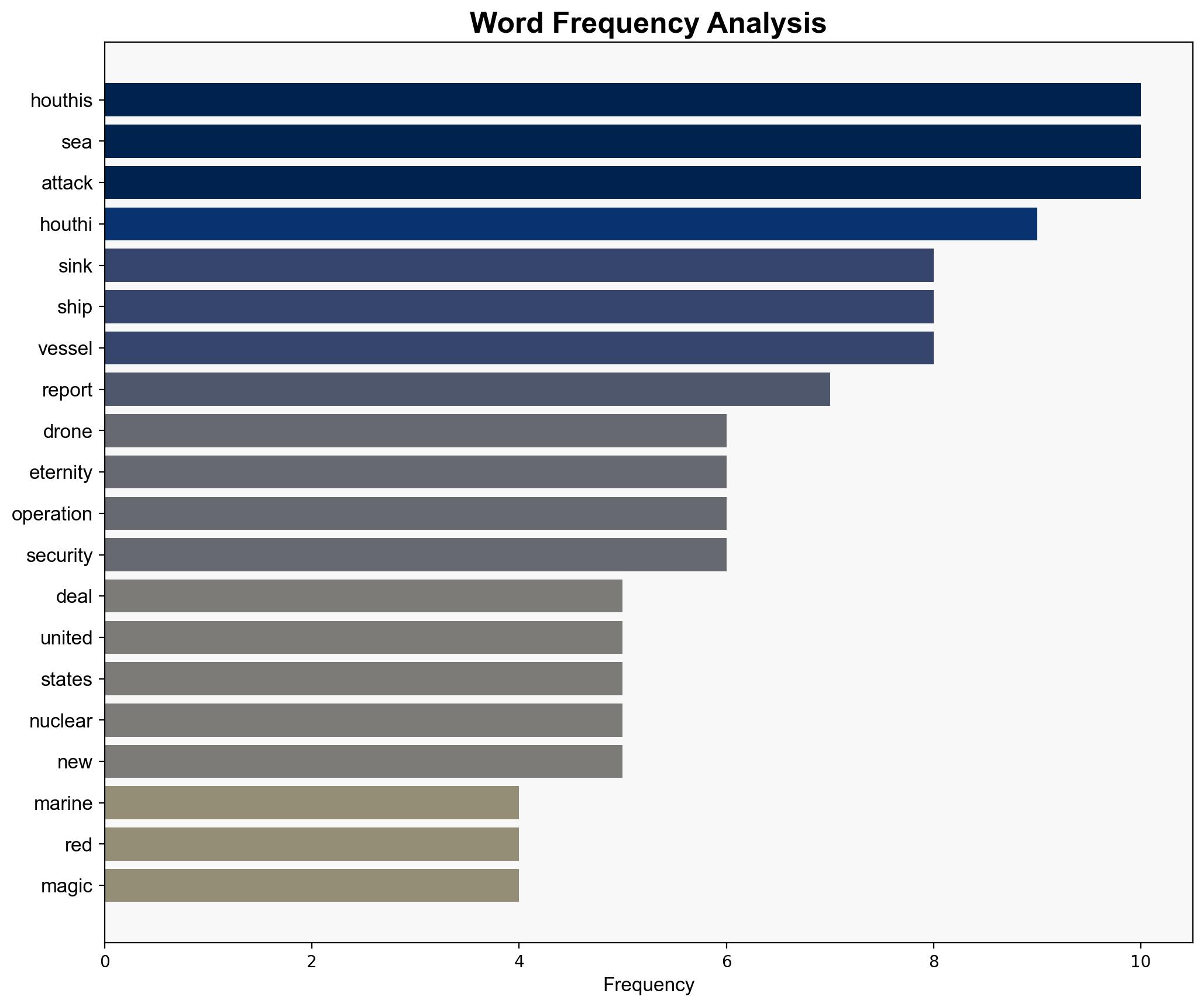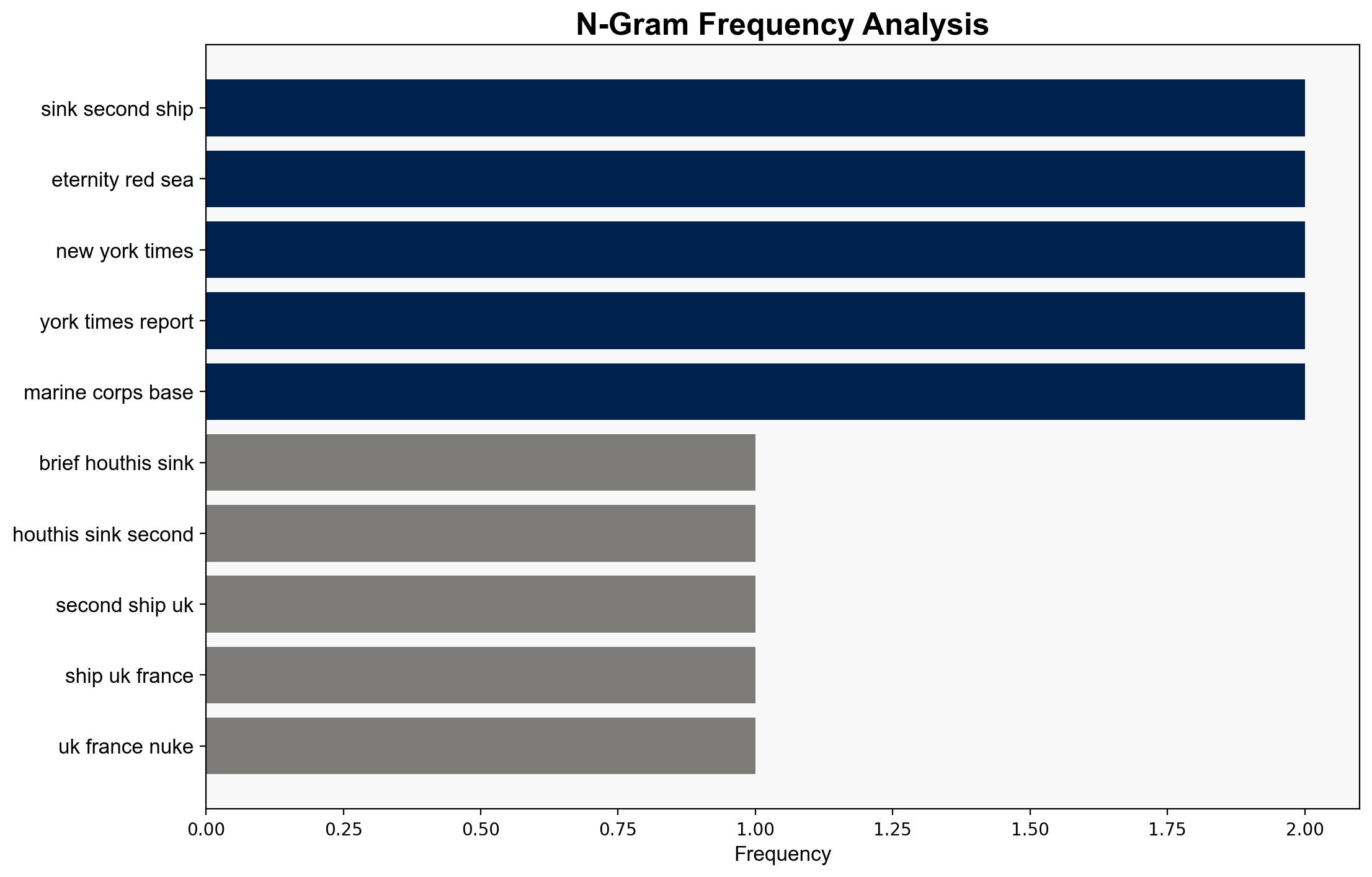The D Brief Houthis sink second ship UK-France nuke deal Russias drone factories 3 Marine bases get ICE agents And a bit more – Defense One
Published on: 2025-07-10
Intelligence Report: The D Brief – Houthis Sink Second Ship, UK-France Nuke Deal, Russia’s Drone Factories, 3 Marine Bases Get ICE Agents
1. BLUF (Bottom Line Up Front)
Recent Houthi attacks on commercial vessels in the Red Sea signal an escalation in maritime threats, potentially disrupting international shipping lanes. Concurrently, the UK and France are advancing a nuclear deal aimed at deterring Russian aggression. These developments necessitate strategic responses to ensure regional stability and safeguard global trade routes.
2. Detailed Analysis
The following structured analytic techniques have been applied to ensure methodological consistency:
Causal Layered Analysis (CLA)
– **Surface Events**: The sinking of the Liberian-flagged cargo ship, Eternity, by Houthi forces follows a similar attack on the Greek vessel, Magic Sea.
– **Systemic Structures**: The ongoing conflict in Yemen and regional power dynamics, including Iran’s influence on Houthi operations, underpin these events.
– **Worldviews**: The Houthis justify their actions as support for Palestinian causes, reflecting broader geopolitical narratives.
– **Myths**: The perception of invulnerability in international waters is challenged, necessitating reassessment of maritime security protocols.
Cross-Impact Simulation
– **Regional Stability**: Increased Houthi aggression could destabilize the Red Sea region, impacting neighboring countries’ economies and security.
– **Economic Dependencies**: Disruptions in shipping could affect global supply chains, particularly in energy and commodities.
Scenario Generation
– **Escalation Scenario**: Continued attacks lead to international naval intervention, increasing regional tensions.
– **De-escalation Scenario**: Diplomatic efforts succeed in brokering a ceasefire, stabilizing shipping routes.
– **Stalemate Scenario**: Sporadic attacks persist, maintaining a state of uncertainty without significant escalation.
3. Implications and Strategic Risks
The Houthi attacks highlight vulnerabilities in maritime security, with potential cascading effects on global trade and regional alliances. The UK’s and France’s nuclear deal may alter power dynamics in Europe, influencing NATO’s strategic posture against Russia. These developments underscore the need for robust counter-terrorism measures and enhanced cybersecurity protocols to protect critical infrastructure.
4. Recommendations and Outlook
- Enhance naval patrols and establish convoy systems in the Red Sea to protect commercial shipping.
- Strengthen diplomatic channels to address the root causes of Houthi aggression and seek conflict resolution in Yemen.
- Monitor the UK-France nuclear deal’s impact on European security and adjust defense strategies accordingly.
- Scenario-based projections:
- Best Case: Successful diplomatic interventions lead to a reduction in maritime threats.
- Worst Case: Escalation of hostilities disrupts major shipping routes, affecting global markets.
- Most Likely: Continued sporadic attacks with incremental international responses.
5. Key Individuals and Entities
– Sal Mercogliano: Maritime analyst providing insights on the Houthi attacks.
– Jon Gambrell: Associated Press reporter covering the developments in the Red Sea.
6. Thematic Tags
national security threats, cybersecurity, counter-terrorism, regional focus




